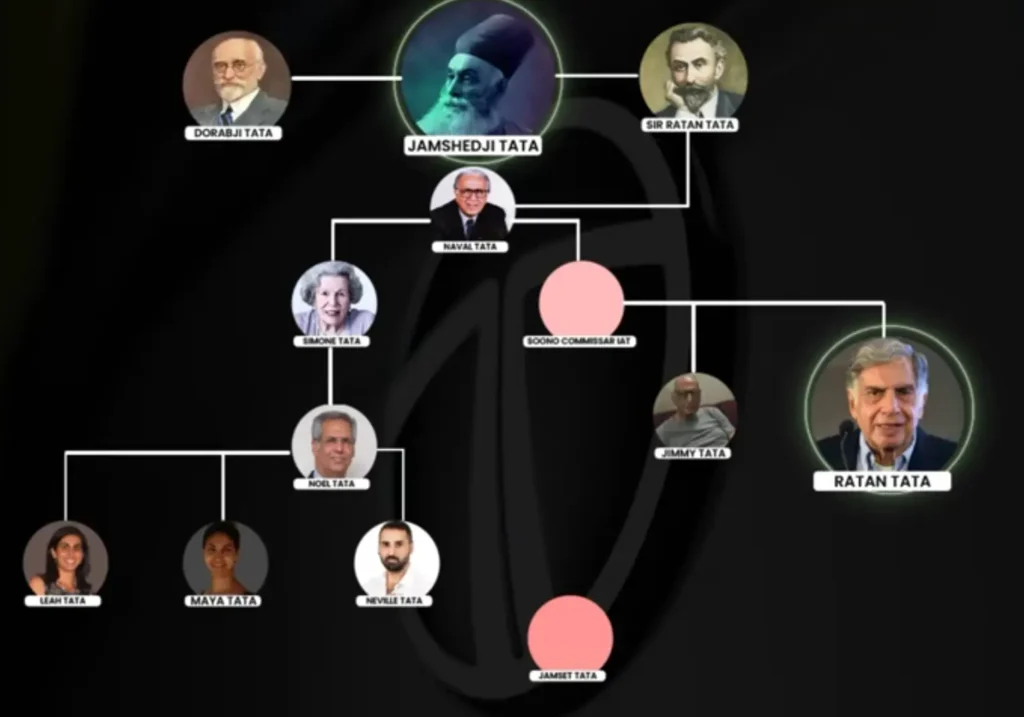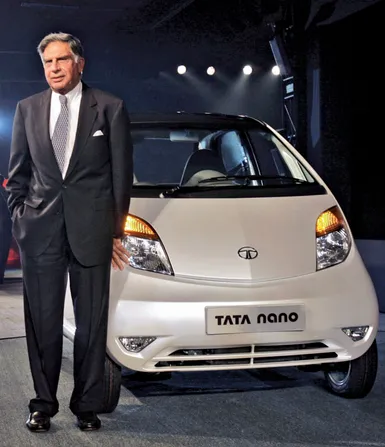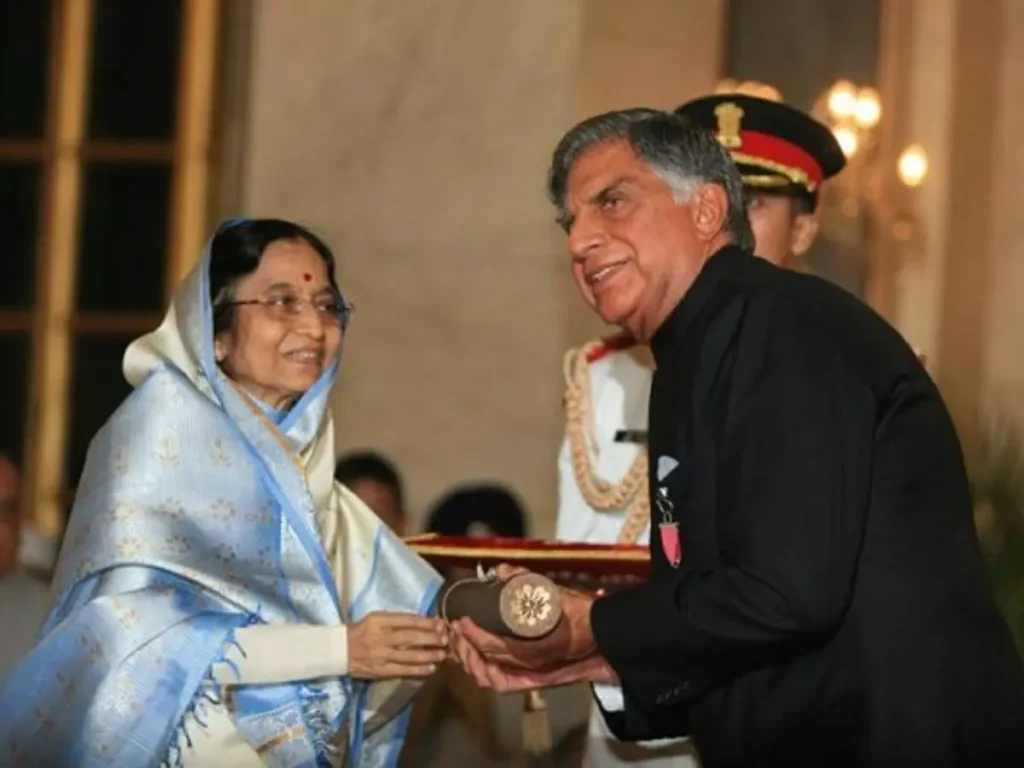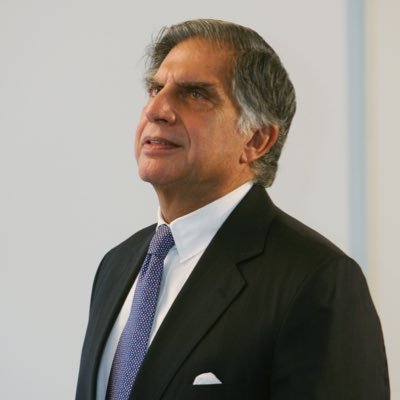Brief Introduction to Ratan Tata
Ratan Tata, born on December 28, 1937, is a prominent Indian industrialist and philanthropist. He is the former chairman of Tata Sons, the holding company of the Tata Group, one of India’s largest and oldest conglomerates. Known for his visionary leadership and ethical business practices, Ratan Tata has played a pivotal role in transforming the Tata Group into a global powerhouse.
Importance of His Contributions to India
Ratan Tata’s contributions to India are manifold. Under his leadership, the Tata Group expanded its global footprint with significant acquisitions like Tetley, Jaguar Land Rover, and Corus Steel. He spearheaded the development of iconic products such as the Tata Indica and Tata Nano, making significant strides in the automotive industry. Beyond business, his philanthropic efforts through Tata Trusts have had a profound impact on education, healthcare, and rural development in India. His commitment to corporate social responsibility and sustainable development has set a benchmark for Indian businesses.
Early Life and Education
Birth and Family Background

Ratan Tata was born on December 28, 1937, into one of India’s most prominent business families. His grandfather, Jamsetji Tata, founded the Tata Group, laying the foundation for what would become a global conglomerate. Ratan Tata’s parents, Naval and Sonoo Tata, separated when he was young, and he was raised by his grandmother, Lady Navajbai Tata. This close-knit family environment instilled in him strong values and a sense of responsibility from an early age.
Education at Cornell University and Harvard Business School
Ratan Tata pursued his higher education in the United States, earning a degree in architecture from Cornell University in 1962. His time at Cornell broadened his horizons and exposed him to diverse perspectives. Later, he attended the Advanced Management Program at Harvard Business School in 1975, which further honed his business acumen and leadership skills. These educational experiences equipped him with the knowledge and vision to lead the Tata Group into new territories.
Early Influences and Mentors
Throughout his formative years, Ratan Tata was influenced by several key figures. His grandmother, Lady Navajbai Tata, played a significant role in shaping his character and values. Additionally, J.R.D. Tata, his predecessor at Tata Sons, served as a mentor and guide, imparting invaluable lessons on leadership and ethical business practices. These early influences and mentors helped mold Ratan Tata into a visionary leader who would go on to make significant contributions to India’s industrial and social landscape.
Career Beginnings

Joining the Tata Group in 1961
Ratan Tata began his journey with the Tata Group in 1961, starting as an apprentice on the shop floor of Tata Steel in Jamshedpur. This hands-on experience was crucial in understanding the intricacies of the business from the ground up. It was a humble beginning for someone who would later lead the entire conglomerate.
Initial Roles and Responsibilities
In his early years at Tata Steel, Ratan Tata took on various roles, including working in the blast furnace and handling blue-collar jobs. These roles were not glamorous but were instrumental in giving him a deep insight into the operational challenges and the workforce’s perspective. His responsibilities gradually expanded as he moved into more managerial positions, where he began to influence decision-making processes.
Key Lessons Learned During Early Career
During his early career, Ratan Tata learned several key lessons that would shape his leadership style. He understood the importance of empathy and respect for all employees, regardless of their position. He also realized the value of innovation and the need to stay ahead of the curve in a competitive market. These experiences taught him the significance of ethical leadership and the impact of making decisions that benefit not just the company but also the community and the nation at large.
Leadership at Tata Group
Becoming Chairman of Tata Sons
Ratan Tata took over as Chairman of Tata Sons in 1991, succeeding J.R.D. Tata. His appointment came at a time when India was undergoing significant economic changes, with liberalization opening up new opportunities and challenges. Ratan Tata’s vision and leadership were pivotal in navigating the Tata Group through this transformative period.
Major Transformations and Global Expansions
Under Ratan Tata’s leadership, the Tata Group underwent substantial transformations. He focused on consolidating the group’s diverse businesses and streamlining operations to enhance efficiency and competitiveness. One of his key strategies was to expand the group’s global footprint. This led to several high-profile acquisitions, including Tetley in 2000, Corus Steel in 2007, and the iconic Jaguar Land Rover in 2008. These acquisitions not only diversified the group’s portfolio but also positioned Tata as a significant player on the global stage.
Ratan Tata’s tenure was marked by a commitment to innovation and sustainability. He championed the development of the Tata Nano, aimed at providing affordable transportation to millions of Indians. His emphasis on ethical business practices and corporate social responsibility set new standards for Indian businesses. Through his visionary leadership, Ratan Tata transformed the Tata Group into a global conglomerate, while maintaining its core values of integrity and social responsibility.
Innovations and Business Ventures
1. Launch of Tata Indica and Tata Nano: Ratan Tata’s ambition to create an affordable car for the Indian market led to the launch of the Tata Indica in 1998. It was the first passenger car designed and manufactured entirely in India, marking a significant milestone for the country’s automotive industry. In 2008, Tata introduced the Tata Nano, touted as the world’s cheapest car, aimed at making car ownership accessible to millions. Despite its commercial challenges, the Nano remains a symbol of innovation and ambition.
2. Contributions to the IT Sector through Tata Consultancy Services (TCS): Under Ratan Tata’s leadership, Tata Consultancy Services (TCS) grew to become one of the world’s leading IT services firms. TCS played a pivotal role in putting India on the global IT map, offering a wide range of services from consulting to software development. The company’s focus on innovation, sustainability, and digital transformation has significantly contributed to the growth of the Indian IT sector.
3. Development of Tata Motors and Tata Steel: Ratan Tata was instrumental in transforming Tata Motors from a commercial vehicle manufacturer to a global automotive powerhouse. The acquisition of Jaguar Land Rover in 2008 was a landmark move that elevated Tata Motors’ global presence. Similarly, Tata Steel’s acquisition of Corus in 2007 made it one of the world’s largest steel producers. These strategic decisions underscored Tata’s commitment to growth and innovation.
Philanthropy and Social Contributions
1. Establishment of Tata Trusts: Ratan Tata has been a driving force behind the Tata Trusts, one of India’s oldest and most influential philanthropic organizations. Established by the Tata family, these trusts focus on a wide range of social causes, including education, healthcare, and rural development. Under Ratan Tata’s leadership, the trusts have expanded their reach and impact, supporting numerous initiatives aimed at improving the quality of life for millions of Indians.
2. Contributions to Education, Healthcare, and Rural Development: Ratan Tata’s philanthropic vision has significantly bolstered education, healthcare, and rural development in India. The Tata Trusts have funded numerous educational institutions, scholarships, and research programs, fostering innovation and learning. In healthcare, they have supported the establishment of hospitals, medical research centers, and health initiatives aimed at providing quality care to underserved populations. Rural development projects have focused on improving infrastructure, promoting sustainable agriculture, and enhancing livelihoods in rural areas.
3. Notable Philanthropic Initiatives and Their Impact: Some of the most notable initiatives under Ratan Tata’s guidance include the Tata Medical Center in Kolkata, which provides world-class cancer treatment, and the Tata Institute of Social Sciences, which offers advanced education in social work and public policy. The Tata Water Mission aims to provide clean drinking water to millions, addressing one of India’s critical challenges. These initiatives have had a profound impact, improving health outcomes, educational opportunities, and overall quality of life for countless individuals.
Awards and Recognitions

1. National and International Awards: Ratan Tata’s contributions to industry and society have earned him numerous prestigious awards both in India and globally. He has been honored with the Padma Bhushan (2000) and the Padma Vibhushan (2008), two of India’s highest civilian awards, recognizing his exceptional service to the nation. Internationally, he has received accolades such as the Carnegie Medal of Philanthropy and honorary doctorates from several universities, highlighting his global influence and impact.
2. Recognition for Business Excellence and Philanthropy: Ratan Tata’s leadership and vision have been widely recognized in the business world. He has been awarded the Lifetime Achievement Award by various organizations, including the Rockefeller Foundation and the Indian Chamber of Commerce. His commitment to ethical business practices and corporate social responsibility has set a benchmark in the industry. Additionally, his philanthropic efforts through the Tata Trusts have been lauded for their significant contributions to education, healthcare, and rural development, earning him respect and admiration worldwide.
Legacy and Impact
1. Long-term Impact on the Tata Group and Indian Economy Ratan Tata’s tenure as chairman of Tata Sons transformed the Tata Group into a global conglomerate. His strategic acquisitions, such as Jaguar Land Rover and Corus, expanded the group’s international footprint and diversified its portfolio. Under his leadership, the Tata Group’s revenue grew exponentially, contributing significantly to the Indian economy. His emphasis on innovation, quality, and ethical business practices set new standards in Indian industry, fostering a culture of excellence and integrity.
2. Influence on Future Business Leaders Ratan Tata’s leadership style and values have inspired a generation of business leaders. His focus on social responsibility and sustainable development has encouraged many to integrate these principles into their business models. By prioritizing employee welfare, customer satisfaction, and community development, he demonstrated that businesses could be both profitable and socially responsible. His legacy continues to influence aspiring entrepreneurs and corporate leaders, who look up to him as a role model for ethical and visionary leadership.
Ratan Tata’s legacy is a testament to his visionary leadership and unwavering commitment to ethical business practices. His impact on the Tata Group and the broader Indian economy, along with his influence on future business leaders, ensures that his contributions will be remembered and revered for generations to come.
Conclusion
Ratan Tata, a titan of Indian industry and chairman emeritus of the Tata Group, passed away on October 9, 2024, at the age of 86. His visionary leadership transformed the Tata Group into a global powerhouse, while his commitment to ethical business practices and social responsibility set new standards in the corporate world. Through his innovative ventures, philanthropic efforts, and unwavering dedication to improving society, Ratan Tata left an indelible mark on the Indian economy and inspired countless future leaders. His legacy will continue to influence and guide the business community, ensuring that his contributions are remembered and revered for generations to come.




